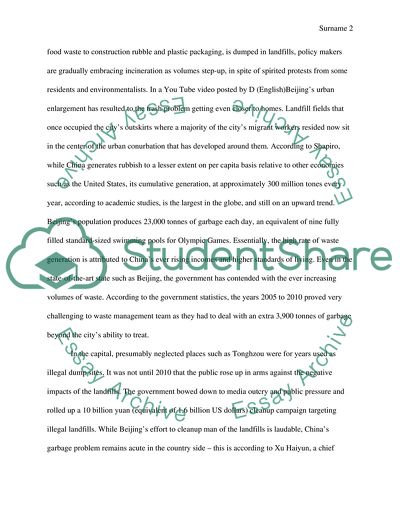Cite this document
(“Garbage in china Essay Example | Topics and Well Written Essays - 1250 words”, n.d.)
Retrieved from https://studentshare.org/english/1661119-garbage-in-china
Retrieved from https://studentshare.org/english/1661119-garbage-in-china
(Garbage in China Essay Example | Topics and Well Written Essays - 1250 Words)
https://studentshare.org/english/1661119-garbage-in-china.
https://studentshare.org/english/1661119-garbage-in-china.
“Garbage in China Essay Example | Topics and Well Written Essays - 1250 Words”, n.d. https://studentshare.org/english/1661119-garbage-in-china.


